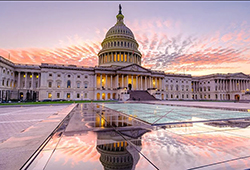On March 17, the U.S. Department of Housing and Urban Development (HUD) announced that it had submitted a Final Rule entitled Restoring HUD’s Discriminatory Effects Standard. The Rule reinstates HUD’s 2013 discriminatory effects rule and repeals its 2020 rule governing Fair Housing Act (FHA) disparate impact claims. Some of the Department’s goals in reinstating the 2013 include:
- Realigning its standard with the central purposes of the Fair Housing Act;
- Removing the additional barriers to housing discrimination suits that the 2020 Rule created; and
- Reinstating a standard consistent with existing jurisprudence on the issue of discrimination in housing.
According to HUD, the 2020 Rule was inconsistent with the spirit of the FHA insofar as the Rule narrowed the scope of the types of suits that could be brought. For example, the 2020 Rule added “new pleading requirements, new proof requirements, and new defenses, all of which made it more difficult to establish that a policy violates the Fair Housing Act and harder for entities regulated by the Fair Housing Act to assess whether their policies were lawful.” Additionally, according to HUD, the 2020 Rule prevented plaintiffs from bringing claims based on certain theories of discrimination—for example the “perpetuation of segregation” theory and “complicated” the discriminatory effects framework provided for in the 2013 Rule.
The 2013 Rule, according to HUD, “more effectively implements the Act’s broad remedial purpose of eliminating unnecessary discriminatory practices from the housing market” and is “consistent with the President’s Memorandum of January 26, 2021 on Redressing Our Nation’s and the Federal Government’s History of Discriminatory Housing Practices and Policies.” In HUD’s view, the 2013 Rule allows plaintiffs to present cases in an uncomplicated structure, needing to prove that (1) a particular policy has a discriminatory effect on a protected class; and (2) the policy is not necessary to achieve a substantial, legitimate, nondiscriminatory interest or there exists a less discriminatory alternative that could also serve the same purpose.
“Today’s rule brings us one step closer to ensuring fair housing is a reality for all in this country,” said HUD Secretary Marcia L. Fudge.
Although the new Rule repeals the 2020 Rule, the 2020 Rule never actually took effect. Three separate lawsuits were filed to challenge it, once of which, Massachusetts Fair Housing Center v. HUD, led to a preliminary injunction. All three lawsuits remain pending. According to the fact sheet HUD released along with the Rule, despite never taking effect, the 2020 Rule was published in the Federal Register and is listed as the current standard, leading to confusion for HUD as well as for private litigants. HUD has suggested that the restoration of the 2013 Rule will create consistency with 50 years of court precedent and will ensure meaningful enforcement of the Fair Housing Act.
The Rule will go into effect 30 days post-submission to the Federal Register.

